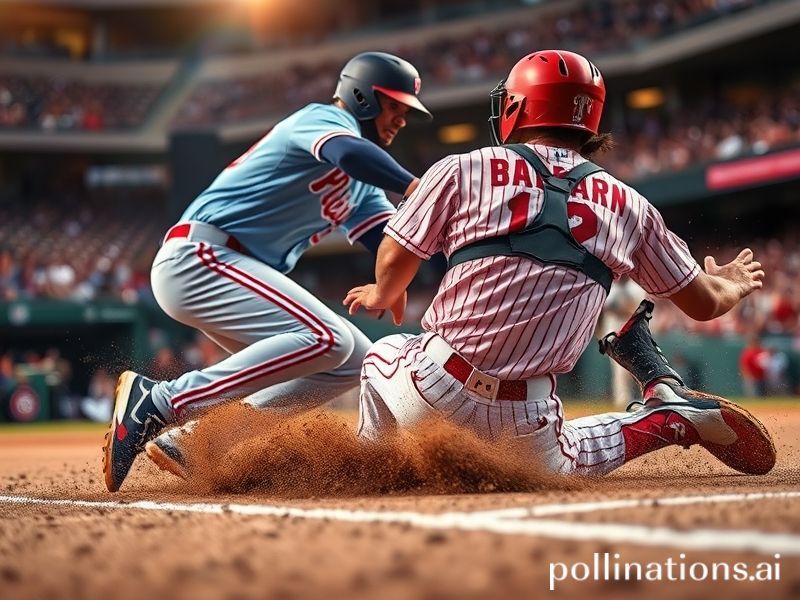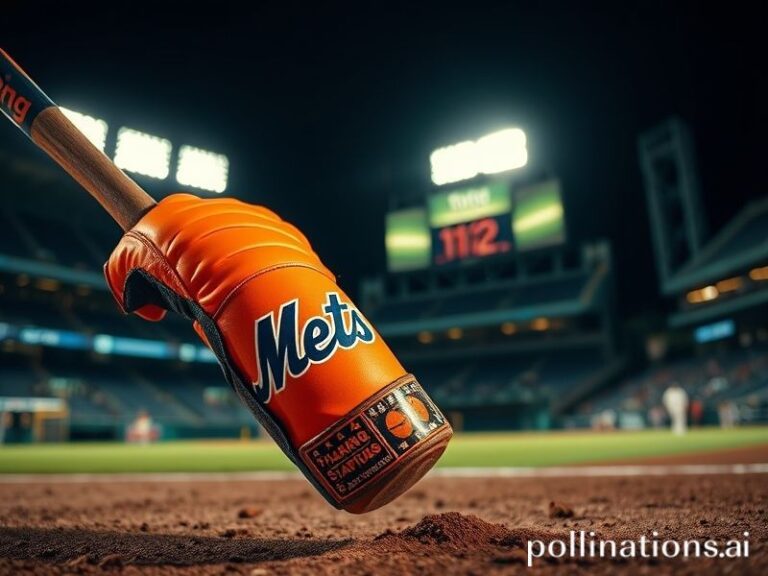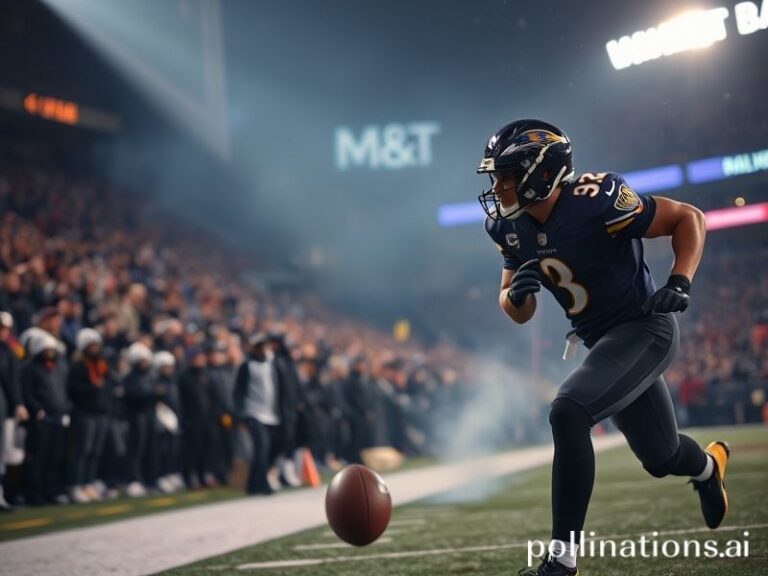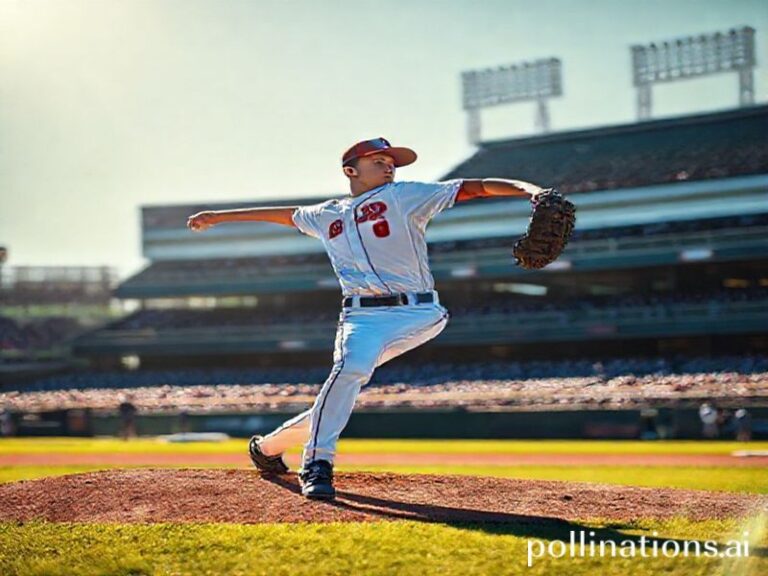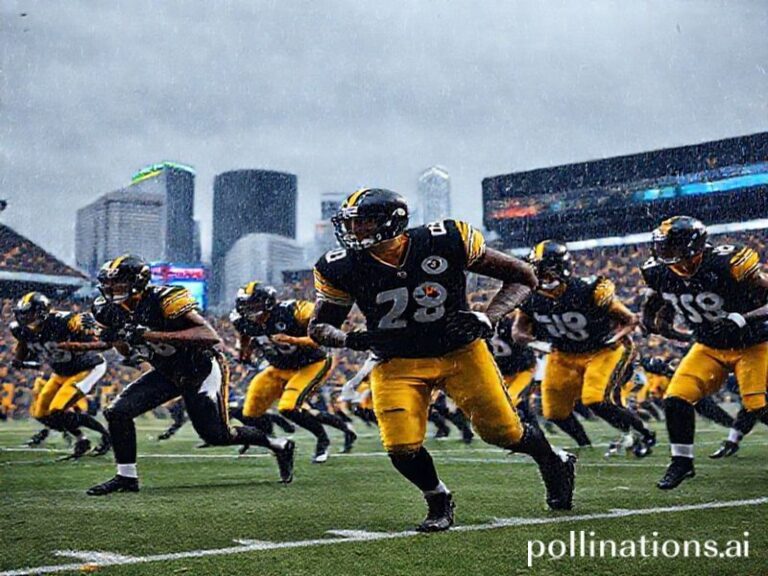From Broad Street to the Brink: How the Phillies Export American Dread in High-Definition
The Philadelphia Phillies, for those who still believe baseball is more than a taxpayer-funded real-estate hustle, have quietly become a small but telling barometer of late-stage global capitalism. While the world’s attention toggles between the next missile test and the latest crypto-meltdown, the Phillies—those red-pinstriped avatars of American pastoral nostalgia—are busy exporting existential dread disguised as sport.
Consider the roster: a Dominican shortstop who fields like he’s defusing IEDs, a Japanese pitcher whose slider broke three hitters’ spirits and one camera lens, and a Venezuelan slugger whose home-run trot lasts long enough to qualify for EU residency. Citizens from four continents wear the same cartoonish mascot on their chest, united by a shared delusion that a polyester jersey can paper over geopolitical fractures. If that isn’t soft-power cosplay, nothing is.
Across the Atlantic, Europeans who once smirked at “rounders for the overfed” now stream Phillies games at 3 a.m., desperate for any distraction from their own energy bills. In Seoul, an entire esports café fell silent last October when Bryce Harper launched a ball into orbit—proof that even in a country where teenagers are paid to be better at video war than actual war, the primal crack of ash on cowhide still thumps the tribal heart.
Meanwhile, the club’s owners—billionaires whose fortune was minted in cable TV, that quaint twentieth-century opiate—wring municipal tax abatements the way other people wring hand towels. Citizens Bank Park sits on real estate that could have been affordable housing, but hey, nothing says civic pride like subsidizing a .500 team to ensure millionaires get their batting-practice sushi at exactly 5:17 p.m.
The Phillies’ current playoff odds hover around the same probability that the UN Security Council will unanimously agree on lunch, yet hope persists, perversely. Sports economists call it “irrational loyalty”; the rest of us call it Tuesday. Every spring, Philadelphians emerge from their rowhouses like cicadas, convinced this is the year the bullpen won’t spontaneously combust. The rest of the planet watches with the polite horror reserved for slow-motion train derailments—except the trains are on fire, and the conductor is arguing about launch angles.
Look closer and you’ll see the Phillies as a multinational supply-chain miracle: uniforms stitched in Nicaragua, maple bats hewn in upstate New York sweatshops, analytics compiled by MIT dropouts who now code for hedge funds. Even the Phanatic—America’s furriest export since democracy—was quietly outsourced to a branding agency in Hong Kong. Somewhere, a container ship groans under the weight of green foam snouts bound for the gift shop, proof that global trade can commodify joy itself, duty-free.
And yet, for 162 games a year, this Frankenstein of late capitalism still manages to conjure something resembling community. Tokyo ramen chefs close shop early to watch Aaron Nola paint corners like a disillusioned Rothko. A barrio in Caracas erupts when Ranger Suárez strikes out the side, because for three minutes nobody has to think about inflation. In a fractured world, the Phillies provide a communal hallucination that outcomes are merit-based and tomorrow might be better—statistics, debt ratios, and climate models be damned.
When the last out is recorded, the stadium lights dim, and the cleanup crews—mostly immigrants earning slightly more than minimum wage—pick up the discarded rally towels. The players board chartered jets to wherever the offseason hides its tax shelters. Fans shuffle back to mortgages, wars, elections, and viruses. The scoreboard goes dark, but the gentle hum of existential dread remains, universally translated.
Baseball, the sages say, is a metaphor for life. The Phillies, bless their .243 collective soul, are simply the loudest reminder that the metaphor is mostly unpaid overtime, a rigged arbitration system, and the faint, statistically improbable hope of a walk-off miracle. The globe keeps spinning, authoritarianism du jour flares on another continent, and somewhere in Philadelphia a 12-year-old still believes next year’s bullpen will be different.
Which, in the end, is the most international language we have: the stubborn refusal to learn from history, delivered in high-definition and sponsored by a crypto exchange no one will remember next season. Play ball.

